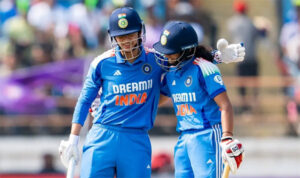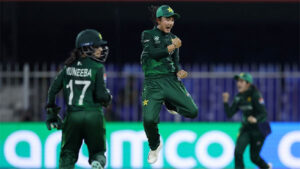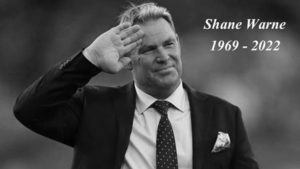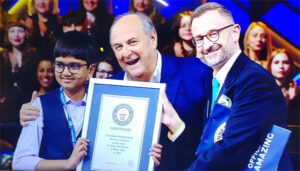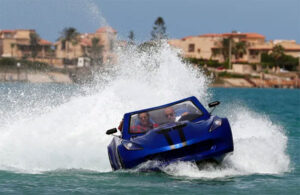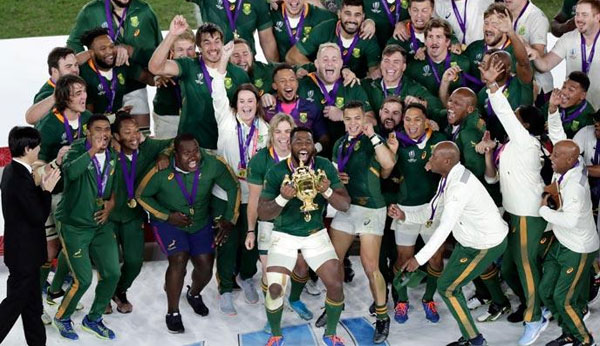
Rugby World Champion South African (Springboks) team national tour begins on Thursday Their first destination on this tour was Soweto, near Johannesburg.
Not long ago, the South African rugby team was hated by the Soweto people.
About three decades ago, the Soweto people fought bitterly against the apartheid regime of whites, and many saw the South African rugby team as the epitome of the Afrikaner invasion.
“Soweto residents often say that the Springboks group is the national party that ruled South Africa,” says Bongani Dilamini, a retired teacher and long-time Soweto resident.
“The blacks saw the national rugby team as a symbol of the power of the African whites. So they insulted the Springboks. ”
“Today, the vast majority of Sowetoans wear a springbox T-shirt. But some 30 years ago, if someone had done such a thing, he would have lost his life. ”
“In that sense, the Springboks team owes Nelson Mandela. He was the one who changed the way I think about rugby. ”
Dilaminith cheered for the Spring Box team that arrived in Soweto on a bus that unveiled the roof on Thursday. Thousands more did.
“The first thing people loved was football. Two of the country’s best-known teams (the Kaiser Chiefs and the Orlando Pirates) originated in Soweto Village. ”
“But nowhere near as exciting as rugby has been. When the Springboks team succeeded and gave us hope, our national football and cricket teams brought us down. ”
“I want this situation to continue. Black players should be given equal opportunity. That’s what we all ask for. We want a fair choice, not a racial quota system, ”Black Africans say.
“Since the final, the captain (Zia Colisi) and the coach (Razi Erasmus) have been talking intelligently. I pray that our politicians will listen to Eve. ”
A few months after he was elected president in South Africa’s first democratic election in 1994, Nelson Mandela was able to successfully defend the Springboks name and mark. At the time, the leaders of the ruling African National Congress wanted to remove the decades-old name and the Springbok deer logo. This is because of the ethnic history of the country.
For the first 90 years since the first game was played in 1891, only white men were selected to the South African rugby team.
Black players were divided into seven groups, and black Africans and colored (mixed-race) leagues were not allowed to participate in international tournaments.
Former President Nelson Mandela supported the Springboks team that competed in the South African Rugby World Championship in 1995 as they worked hard to unite all South Africans who were divided by apartheid.
His gambling was a huge success, with the Springboks winning the World Cup in a 15-12 win over the New Zealand-hated New Zealand team in the 1995 final, in front of more than 63,000 spectators at the Ellis Park Stadium in Johannesburg.
When President Mandela arrived at the stadium wearing a t-shirt resembling a t-shirt worn by Springboks leader Francois Peාර්ar, the majority of white people cheered, “Nelson! Nelson !! Nelson !!!”
Despite winning the World Cup for the first time in the final, Mandela’s and ministers’ requests for a racial balance in the Springboks team were rejected.
Mandela wanted to keep the team victorious until the racial equilibrium of rugby was achieved. Only one black player was included in the 1995 World Cup winning team. It was Chester Williams who died about two months ago. Only JP Peterson and Brian Habana were included in the 2007 World Cup winning squad.
Brian Habana, a mixed nationalist, is an eternal hero of the rugby world. But over the years, black players have only been used for two back positions, but black players do not seem to have the opportunity to play in the front.
After an endeavor, Tendai, who retired last week after 117 appearances, retired last week, and secured his place in the team, but the team’s ethnic evolution is still slow.
Despite the fact that 90% of South Africa’s population is black and not represented by rugby, the country’s first two black coaches, Peter De Villiers and Aleister Koetzi, did not change that.
Erasmus, who was a white man and former frontman of the Springboks after Coetzee became the coach, responded to requests for equal opportunities for black players, saying: “Let’s just talk and work.”
